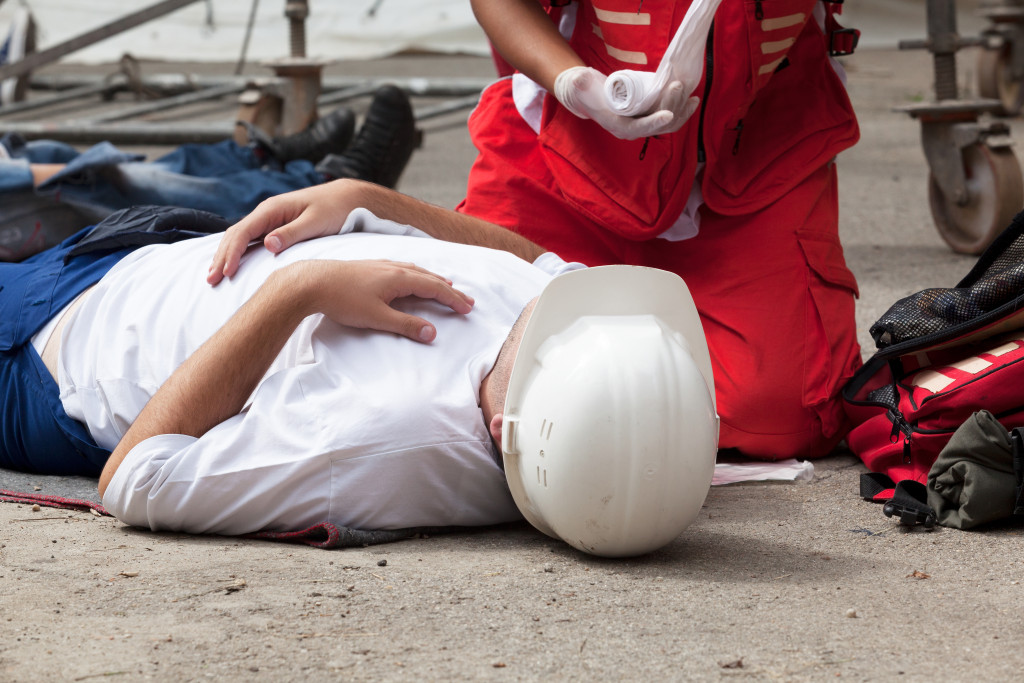The preparedness of businesses for emergencies and disasters can have a significant impact between keeping the business and losing everything. A disaster plan or a simple guide for employees and staff can help ensure your company recovers and survive.
While preventing emergencies and disasters is one thing to consider, being prepared is also just as vital. Understandably you don’t want the worse to happen, but if it does happen, are you prepared? Are your employees aware of what they are supposed to do? Remember that apart from saving your business, your employee’s lives are at stake too.
Why You Need to Prepare
There are many reasons why you need to prepare for emergencies and disasters. But the main reason is to minimize the losses that might happen following a disaster. Being prepared is also a great way to reduce your anxiety and fear. Anxiety attacks could occur if you have too many “What ifs” in your mind.
Preparation is crucial for your survival and recovery. As mentioned, preparedness could either bring your business back to the map or end it for good. Overall, it’s all about how you handle the situation, implement your emergency plan, and how everyone reacts during the event.
It takes teamwork. You and your employees need to work together to survive. No matter how good your plan is, it will all be for nothing if they don’t cooperate and listen to your instructions. The same thing goes for you. You need to be the first to follow the guidelines, so your employees can see how dedicated you are to keeping the business and everyone safe.
Here are the advantages of having a disaster plan:
- Guaranteed continuous survival.
- Boosting staff morale
- Better inter-communication
- Control over insurance premiums.
- Increased business value.
- Guaranteed income.
- Peace of mind.
Prevention
The wisest thing to do is to prevent disasters from happening. Indeed, minor accidents and emergencies might still occur. But significant events like fire and explosions could happen without utmost diligence.
Perform regular inspections and check your systems for fire prevention. Most airflow control valve manufacturers believe that business owners can prevent emergency problems with proper system maintenance and regular systems checking. Also, determine the risks if anything happens and know their possible impact on your business, so you can efficiently create a disaster plan.
Evacuation Plan
Keep your employees in mind as you create your emergency plans. Always prioritize their safety over anything else. Have at least two emergency exits for the employees, one primary and one secondary.
Be sure that the evacuation routes are well lit, accessible, and marked, so employees can quickly identify them. Discuss the evacuation plan with your employees too. Explain to them the routes, where to meet after evacuating, and the responsibilities they need to do, like helping injured people and counting the survivors. If you have employees with physical liabilities, make sure that they are included in the plans.
Emergency Contact Numbers
Aside from emergency contact numbers (hospital, polices, ambulance, fire), it’s also essential to keep a copy of the contact numbers of distributors, suppliers, and customers. The extra copy should be somewhere safe and far from the workplace, like your home.

Emergency Kit
You’ll never know when emergencies might happen, so it’s vital to have an emergency kit. It should include essential supplies like medicines, first aid supplies, batteries, water, and nonperishable food. Make sure the emergency kit is in an accessible place during an emergency.
Keep Your Business Tools Safe
Protect your sensitive business documents by storing them in a safe. Make sure that your safe has been approved to be heat and fire-resistant. Safe boxes are also resistant to burglary tools, so you don’t have to worry if anyone will find your safe box.
Determine the Risks
Know what type of risks you might face in the future. Once you determine where your business is most at risk, take precautions to prevent damages or loss to your employees or company properties.
Plan the actions you need to do and all the things you might need in case of an extreme storm, flood, fire, or other natural calamities.
Review Your Business Insurance
It would also be helpful if you had a complete understanding of the coverage of your business insurance. Take some time to speak with your agent to ensure that you understand your policy’s limits, deductibles, and coverage.
There are various types of insurance coverage. And each range has its disadvantages, disadvantages, and exclusions. Before the worst things happen, make sure that you know what to do and how your insurance can help in times of disaster.
Being prepared is vital as it could be a way to save your beloved business. It’s not easy to start from scratch and work your way up in the industry. If you’re not prepared for disasters, there’s a high chance that you might start at the bottom again.

